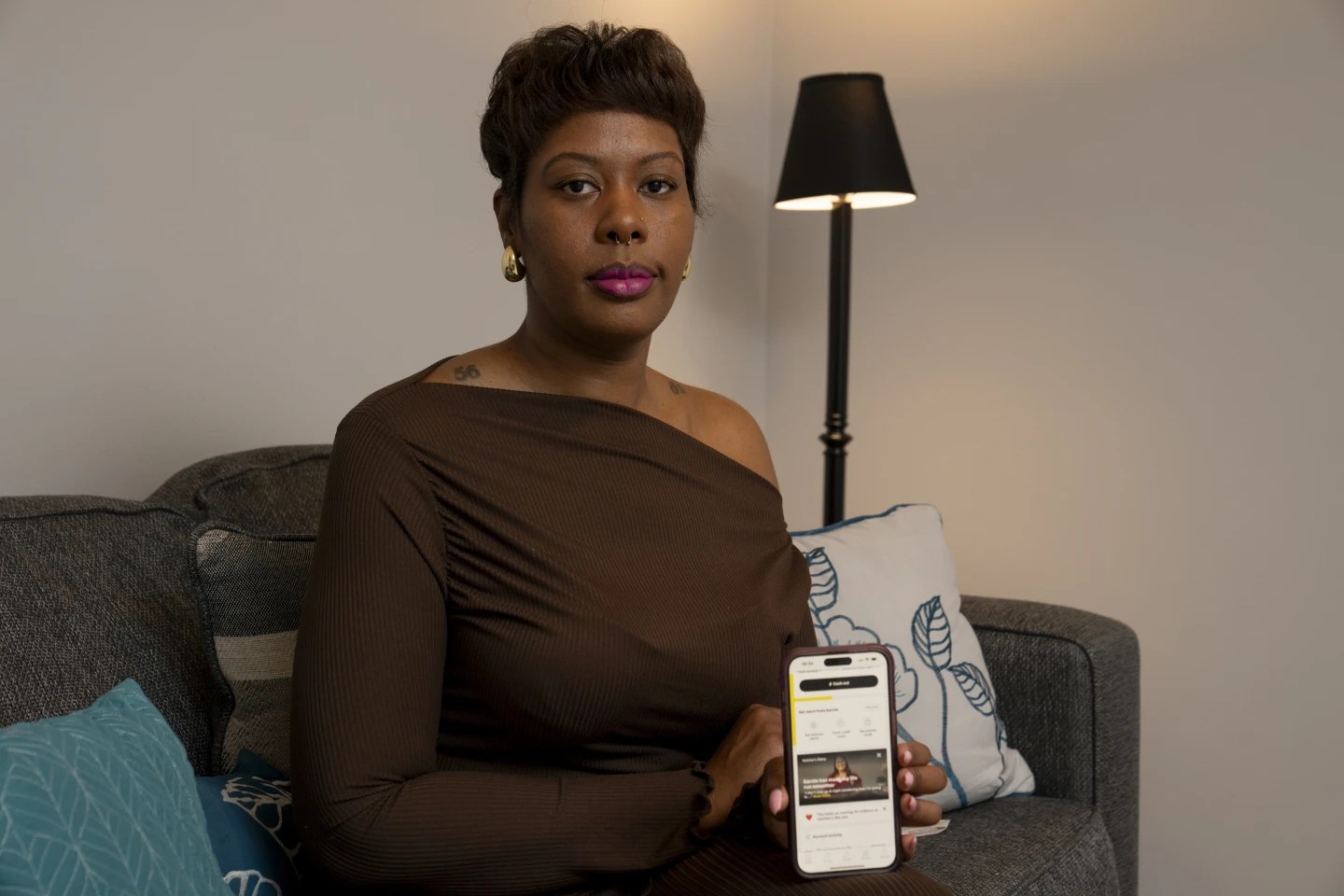NEW YORK (AP) — When Anna Branch, 37, had her hours at work reduced in 2019, she suddenly noticed ads for an app called EarnIn.
“You know how they get you — the algorithms — like they’re reading your mind,” Branch said. “The ad said I could get up to $100 this week and repay it in my next pay period.”
Branch, who was working as an administrative assistant in Charleston, South Carolina, downloaded the app and added the suggested “tip.” The cash helped her cover expenses until payday, when the app debited the borrowed $100, plus $14 for tip. Five years later, Branch said she still uses the app, as often as once a month.
EarnIn is one of more than a dozen companies that provide this service, billed as Earned Wage Access. The apps extend small short-term loans to workers in between paychecks so they can pay bills and meet everyday needs. On payday, the user repays the money out of their wages. Between 2018 and 2020, transaction volume tripled from $3.2 billion to $9.5 billion, according to Datos Insights.
While Earned Wage Access apps have been around for over a decade, the pandemic and its aftermath boosted their popularity. Some apps have approachable human names — like Dave, Clio, Albert, and Brigit — while others suggest financial freedom: Empower, FloatMe, FlexWage, Rain. The typical user earns less than $50,000 a year, according to the Government Accountability Office, and has experienced the pinch of two years of high inflation.
Proponents of the apps say they help people living paycheck to paycheck manage their finances and avoid the need for more onerous options, such as payday loans or overdrawing a bank account. But some analysts, consumer advocates and lawmakers say the apps are actually payday loans in a new tech wrapper, and that they can trap users in an endless cycle of borrowing that depletes their earnings.
Critics also say the costs of the loans are not always transparent. Many charge…
Read the full article here



